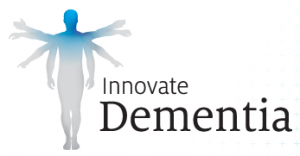| |
AETIONOMY |
A five-year project (from Feb 2014). It aims to identify subgroups of dementia and Parkinson’s disease – based on the underlying genetic or molecular causes of the variants – in order to allow tailored therapies. The project will involve the collection of clinical data, imaging and genetic data and will create a new way to combine all of these together to look for patterns which could identify sub-groups of patients with similar causes of their disease. |
 |
AE: The changing definition of Alzheimer’s disease and its ethical implications |
In 2016, Alzheimer Europe will continue to develop its European Dementia Ethics Network. The changing definition of Alzheimer’s disease and its ethical implications have been identified as the priority for its work this year. A working group will be set up comprised of ethicists, clinicians, researchers, people with dementia, carers and representatives from Alzheimer associations. The group will meet twice in the course of the year to discuss the ethical issues raised by the changing definition of Alzheimer’s disease. This will lead to the publication of a report in December containing the results of the literature review and recommendations. |
 |
AE: Dementia in Europe Yearbook 2016 |
AE continues to compare policies relevant to people with dementia across Europe. In 2016, the comparative report will focus on policies directly affecting the rights of people with dementia, particularly legal capacity, consent and proxy decision-making systems. The report will compare and contrast these policies in the legal systems of AE member countries and present key findings and conclusions. It will also provide examples of good and innovative practices and relevant gaps in these policies and practices in Europe. All AE members will be invited to participate in this work. |
 |
Dementia Engagement & Empowerment Project |
DEEP brings together groups of people with dementia from across the UK, and supports these groups to try to change services and policies that affect the lives of people with dementia. Resources from the DEEP project |
 |
ehcoBUTLER | A global ecosystem for the independent and healthy living of elder people with mild cognitive impairments. H2020/PHC20 |
 |
European Medical Information Framework project | EMIF is connecting data on 52m individuals to decipher links between genetic background, biological abnormalities, brain imaging changes, mental symptoms and disease progression. Creating an environment that allows for efficient re-use of existing health data. Includes two specific therapeutic research topics including the onset of Alzheimer’s disease. Aims to discover and validate biomarkers of AD onset and also identify high-risk individuals for therapeutic trials for prevention. |
 |
European Prevention of Alzheimer’s dementia |
EPAD is a collaborative research effort to improve the chance of successfully preventing Alzheimer’s dementia and to better understand early aspects of AD before dementia develops. The goal of the initiative is the prevention of dementia in people with evidence of the disease (such as biomarker abnormalities) who still may have little or no complaints or clinical symptoms. EPAD will establish a European-wide cohort of over 6,000 participants, of which 1,500 will be invited to participate in a trial to test new treatments for prevention of AD dementia. The five year programme is part of the Innovative Medicines Initiative, a joint undertaking between the European Union and the European Federation of Pharmaceutical Industries and Associations, EFPIA. |
 |
IBERDEM |
Iberoamerican Network for Research in Prevention & Intervention Strategies in Dementia was established to develop, maintain and strengthen close and constant exchange of information and knowledge among Latin American countries, through collaborative research in this field. |
 |
INDUCT | INTRAS (through its spin-off IDES) is participating in the MSCA Innovative Training Network INDUCT. IDES works in development, research and technological innovation and commercialization of products in the health field, while INTRAS promotes intervention and direct attention services devoted to the end user, thus producing constant feedback between the two organizations. Therefore, through this dual-axis IDES-INTRAS, we have the expertise to address new challenges in both care provision and technology. |
 |
Innovate Dementia |
Aims to promote innovative care for persons with dementia. The sustainable solutions developed and tested in the Living Labs take account of those socio-economic challenges concerned with ageing and dementia. The 3-year project has been developed with eight partners from the NWE region (Brainport Development – Lead Partner) and been made possible by the INTERREG IVB NWE programme. |
 |
INTERDEM – Early Detection & Timely Intervention in Dementia | Clinical academic network promoting research on early recognition & psychosocial intervention in dementia, to build capacity and develop a better understanding of the experience of people with dementia and their families, throughout Europe. |
 |
MEMRICA |
A tech start-up based at the Innovation Birmingham Campus, and is developing a mobile aid for people with memory problems, including the early stages of dementia. They are currently seeking volunteers to test some of their software. More information |
| |
NILVAD |
NILVAD is conducting a phase 3 clinical trial of Nilvadipine, an existing hypertension drug, in people with mild to moderate Alzheimer’s disease. Previous research showed that the drug also blocks production of the amyloid protein, believed to be central to the AD process. The trial is being conducted in 21 study sites in nine European countries on 500 participants who are receiving the drug or a placebo over an 18 month period. |
 |
PACE |
PACE will describe and compare the effectiveness of healthcare systems in six European countries with (BE, NL, UK) and without (FI, IT, PL) formal palliative care structures for long-term care facilities in terms of patient and family outcomes, quality of palliative care and cost-effectiveness, and in terms of staff knowledge, practices and attitudes. This will involve mapping palliative care systems across Europe, a retrospective, representative cross-sectional study of deaths in long-term care facilities in each of the six participating countries and an interventional study measuring the impact of training on the quality of the end-of-life experience. |
 |
PredictND |
PredictND (Patient Data to Clinical Diagnosis in Neurodegenerative Diseases) is a four year (from Jan 2014), EU-funded EUR 4.2 million project coordinated by VTT Technical Research Centre, Finland. Its primary aim is to develop tools and means for earlier, evidence-based and data-driven diagnosis of a range of neurodegenerative diseases (NDs) such as Alzheimer’s disease, vascular dementia and fronto-temporal dementia. This novel approach will be tested on 800 patients in four hospitals in FI, DE, NL and IT. |
| Smart buttons |
Smart buttons can be programmed to do pretty much anything on a phone or tablet (a minimum 3 functions for each button). | |
 |
SMART4MD | The four year SMART4MD project will develop an app called Support, Monitoring and Reminder Technology for Mild Dementia, designed to help people with mild dementia adhere to treatment regimens as well as allowing them to share health-related data with their carers and doctors. As well as giving people more control over their care, the aim is to slow cognitive and functional decline and to reduce pressure on carers as well as costs for healthcare providers, through use of the app. It will be piloted with 1,100 volunteers from several EU countries. |
| |
SyDAD (Synaptic Dysfunction in Alzheimer’s Disease) |
SyDAD is a European Training Network, sponsored by Horizon 2020 Marie Sklodowska Curie Actions. The research programme will focus on synaptic dysfunction, the main connection point between pathology and cognitive decline in Alzheimer’s disease. It will support and train 15 Early Stage Researchers (ESRs, PhD students) with an interest in the area of Alzheimer’s disease and synaptic dysfunction, focusing on new drugs and biomarkers. The project is led by the Department of Neurobiology, Care Sciences and Society at Karolinska Institutet (Sweden). |
 |
LAUGH |
The AHRC funded LAUGH research project supports people with late stage dementia through designing innovative playful products that amuse, comfort, engage, bring joy and promote ‘in the moment’ living. |
